- Our Products
- Upper Extremity
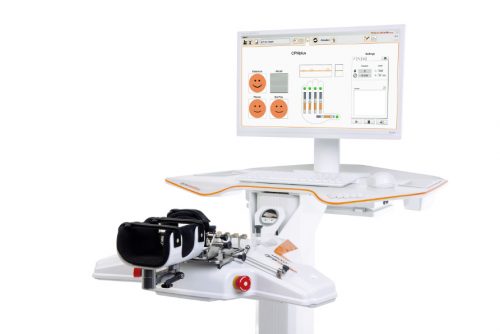 AMADEO The hand therapy world champion
AMADEO The hand therapy world champion
Boredom in finger-hand rehabilitation? Not with AMADEO! Motivation in the course of therapy is just as essential as fingers and hands are for daily life. Regardless of whether it is an adult or child, AMADEO increases therapeutic ambition with sophisticated robotics and a playful approach, and also visualizes the smallest successes in all phases of rehabilitation. Bottom line: AMADEO is simply unique.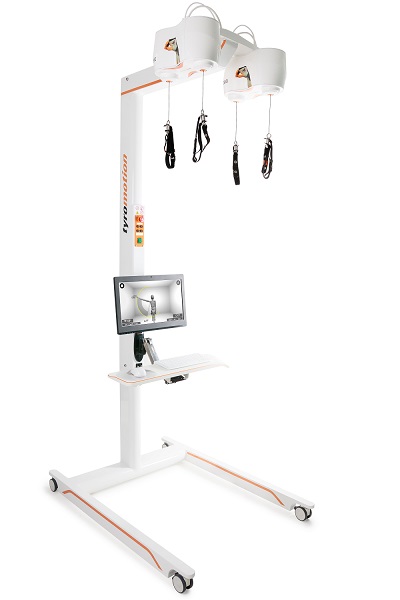 DIEGOBilaterally back to life
DIEGOBilaterally back to life
Finally go fishing again? DIEGO® skilfully assists patients with its unique intelligent weight relief. With its three-dimensional therapeutic area and virtual reality, DIEGO® enables the ideal transfer of what you have learned into everyday life – exactly with the required support. Nothing more and nothing less.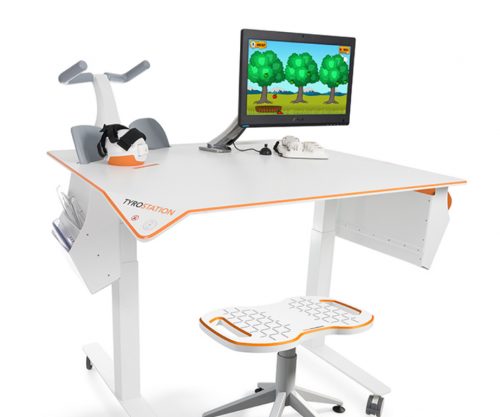 TYROSTATION Endless options, well organized
TYROSTATION Endless options, well organized
Anyone who is as versatile as PABLO® and TYMO® needs structure to really unfold. The Tyrostation is home to all individual components of our two all-rounders and also provides perfect ergonomic adaptability for every patient.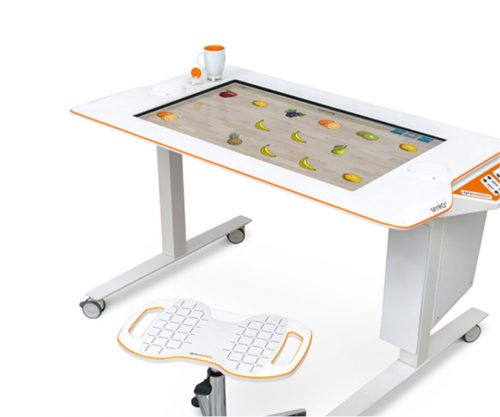 MYRO Full of variety, versatility, innovation and creativity
MYRO Full of variety, versatility, innovation and creativity
Real objects, power control, touch applications and a whole lot of fun: this is what constitutes goal-oriented, intuitive therapy with MYRO. The sensor-based surface is the basis for creative therapy which brings about meaning and self-determination in daily life.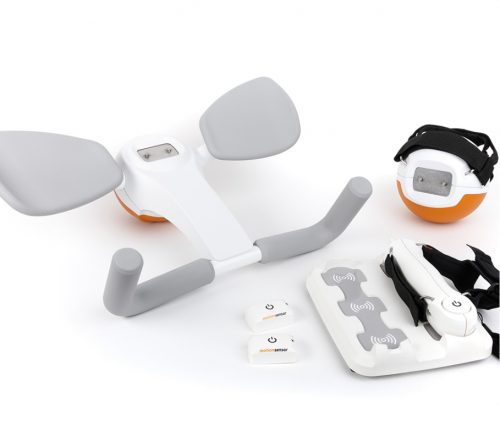 PABLO As versatile as life
PABLO As versatile as life
PABLO® is an all-rounder when it comes to activities of daily living. Position sensors and numerous accessories open up incredibly versatile therapeutic options in a safe environment for patients of all impairment levels.
- Lower Extremity
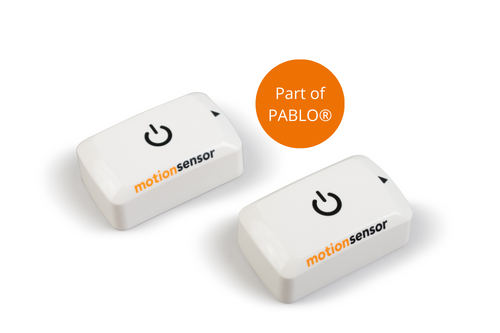 PABLO Lower ExtremityPart of PABLO®
PABLO Lower ExtremityPart of PABLO®
Always know where therapy is going
PABLO® Lower Extremity, our gait analysis and training system, precisely measures the parameters which are required for the selection of the most effective therapeutic measures for gait improvement. Simple and location-independent application as well as size-independent measurement makes the package complete – small device, great effect!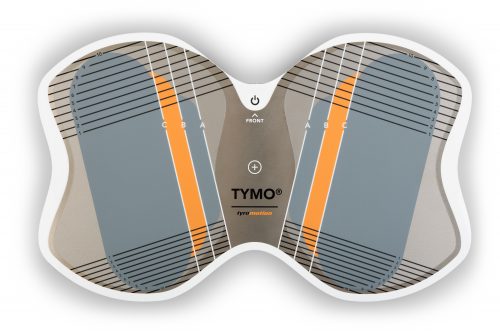 TYMO Balance in perfection
TYMO Balance in perfection
TYMO, a portable posturography system and the world’s thinnest balance platform. Flexible in application, TYMO trains postural control in a sensitive, specific and meaningful manner, and is therefore the basis of all movements. Motivation and fun are included.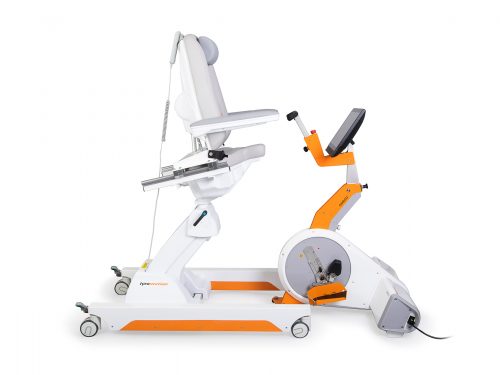 OMEGO Plus Therapy for all phases of gait rehabilitation gone motivational
OMEGO Plus Therapy for all phases of gait rehabilitation gone motivational
Two separate drives mobilize the patient in an effortless, isolated and focussed manner, and therefore make OMEGO® the long-desired stopgap between mobilization and locomotion. What else remains for patient and therapist to do? Train in a motivated manner, have fun and achieve goals.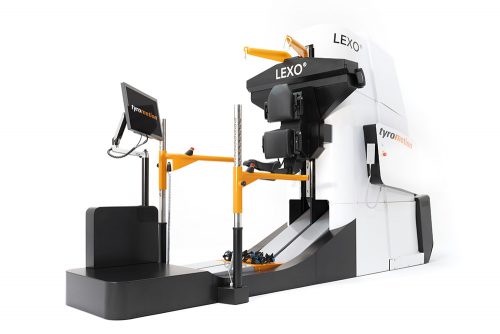 LEXOGait training at its best
LEXOGait training at its best
Maximum number of steps and intensity, low in height, easy handling and fast setup time: Impossible? It works! With LEXO® patients take the first impressive steps back to mobility and enjoy the feeling that things are finally getting better again.
- MTT-Line
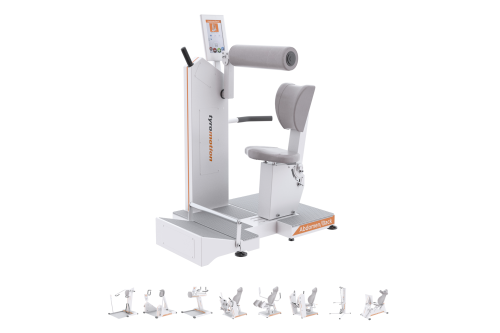 MTT-Line Medical training therapy
MTT-Line Medical training therapy
The barrier-free MTT-LINE specifically strengthens the six major muscle groups of the human body.
- Software
 TyroS The heart of our technology
TyroS The heart of our technology
Our TyroS software – developed by and together with therapists – is the heart of our technology that combines devices, know-how and therapeutic games. It is a sophisticated therapeutic system that helps challenge and encourage patients.
- Upper Extremity
Rehabilitation
Teamspirit: How multidisciplinary support improves neurorehabilitation
27. December 2022 ● 3 min. Reading time
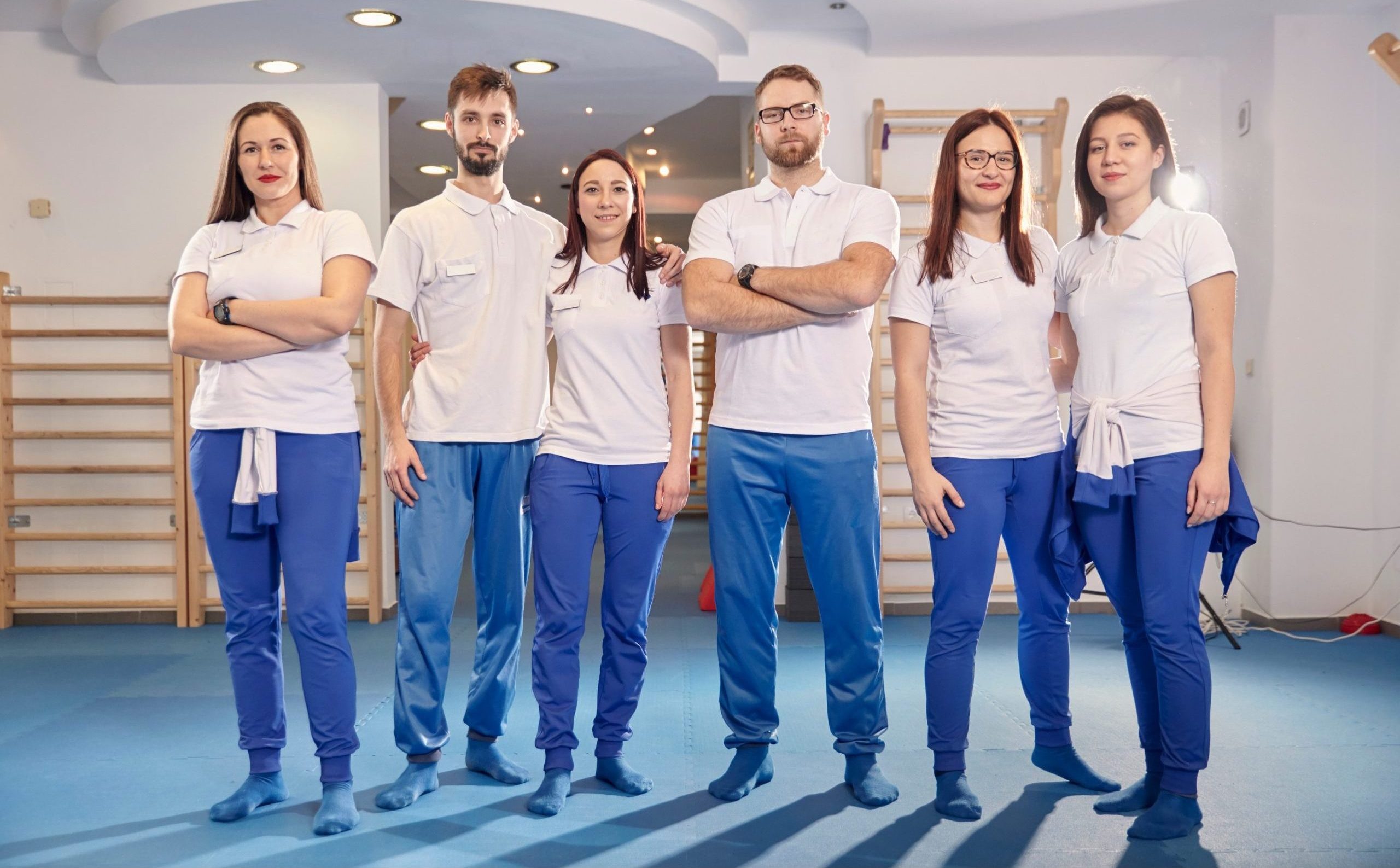
What is a multidisciplinary team?
Like the saying “two heads are better than one,” a multidisciplinary team brings together several professionals from different areas of study. Their collective knowledge improves patient outcomes. For example, a nurse and a physical therapist have professional medical training in different disciplines. When they work together, they combine their distinct perspectives and expertise.
Combining different approaches during rehabilitation can lead to better results. Various disciplines promote each other. Additionally, every patient has different preferences and may prefer one discipline over the other.
Research has shown that stroke survivors who received care from a multidisciplinary team were more likely to live independently at home one year after the event.
Every team member has a role to play
Team members on a multidisciplinary neurorehabilitation team might include physicians; occupational, physical or speech therapists; nurses and behavioral health therapists.
- Physicians: Doctors on the team may specialize in physical medicine, rehabilitation, neurology or neurosurgery. Their extra training and experience contribute to treating a patient’s specific condition. In addition, physicians can manage care and recovery, recommend the course of treatment and prescribe medications.
- Physical, occupational and speech therapists: These therapists use physical and mental activities to help patients overcome their limitations and promote independence. While these different therapies often work together, they have their own areas of focus. For example, physical therapy focuses on reducing pain, building strength and increasing range of motion and functional mobility. Occupational therapy helps patients perform the activities of daily living, such as getting dressed or taking a shower. Speech language pathologists work to improve a patient’s ability to speak, eat and swallow. Speech therapy can especially help those affected by Aphasia.
- Nurses: Nurses regularly work with patients in many ways throughout rehabilitation. They play a major role in educating patients about their neurorehabilitation and health. Depending on the severity of a patient’s condition, a nurse may make regular visits to their home or provide 24/7 care. Some nurses act as care managers who help patients with ongoing care for a chronic condition.
- Behavioral health therapists: A neurological condition or injury can abruptly change a patient’s life. A behavioral health therapist can help patients cope with and work through those changes and help manage psychological problems that can arise after a brain injury. These professionals may be counselors, psychologists or psychiatrists.

The support of family and friends in rehabilitation
In addition to the patient’s role of participating in rehabilitation, family and friends have an especially important role on the team. They can provide emotional support by offering encouragement, giving a welcome diversion or simply being present and listening. Loved ones may also go with patients to their appointments and therapy.
As the patient works toward greater independence through rehabilitation, family and friends can support them through the transition and assist with daily activities at home.
By working with a team of multidisciplinary specialists and a support network of family and friends, patients can improve their function through neurorehabilitation.
You might also be interested in
4. April 2023
Health
Rehabilitation
Stroke nutrition guidelines for optimal health
Nutrition as the key part in health and well-being of stroke survivors A healthy, balanced …
21. March 2023
Rehabilitation
Kinesio taping in neurology as a useful therapy supplement
The Kinesio tape and its usefulness in neurological therapy What was originally known only from …
7. March 2023
Rehabilitation
Exercises against freezing of gait in Parkinson’s disease
When the legs freeze – how does the symptom “Freezing of Gait” manifest itself? Parkinson’s …








